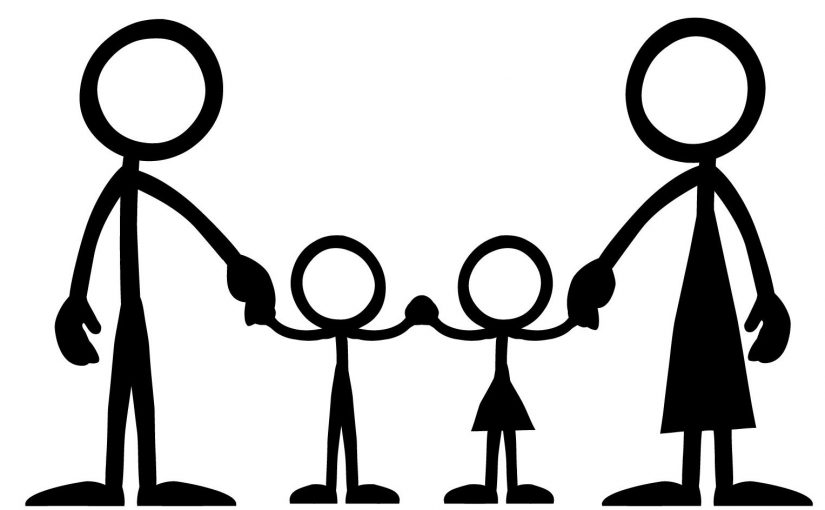A homily for the Feast of the Holy Family, Dec. 29, 2019
It’s 2 a.m., and the phone rings. It’s your son.
“Um, Dad? Uh, yeah, hi, I’m still at the party and I had too much to drink and I can’t get a taxi or an Uber. I’m sorry I’m calling so late.”
It’s 2 a.m., and there’s a knock at the front door. It’s the police.
“Ma’am, there’s been an accident. Your daughter is in the hospital. She’s unconscious.”
It’s 2 a.m., and rifle butts are breaking down your door. It’s the renegade militia. They’re coming to steal your children and turn them into little soldiers, and probably to kill you.
Of course you go pick up your son.
Of course you speed to the hospital and stay by your daughter’s bedside.
Of course you escape out the back, go into hiding, even flee your country to someplace safe. If you can.
Of course.
Because that’s what families do.
Just as St. Joseph did, in this Gospel and in the few other times he’s mentioned in Scripture. He heard the call, assessed the situation, did the best he could with the resources he had, and cared for his family. Became a refugee, more than once. Stepped out of the spotlight usually given to Jewish fathers more than once.
In doing so, Joseph helped fulfill Jesus’s destiny, helped Jesus be aligned with the prophets’ vision of him.
We have every reason to believe the Holy Family supported each other as a loving unit. We don’t know a lot about them or their day-in-day-out lives in Nazareth, and in a lot of ways that’s good, because of course Jesus had a cold or refused to go to bed on time or procrastinated on his chores once or twice, because of course he was a fully human boy in Israel, and that’s what kids do.
Scripture need not get muddied up with obvious details.
So, indeed, we have the Holy Family as role models.
Joseph’s strength and obedience to God.
Mary’s heart, and an even deeper obedience.
Jesus’s evolving understanding of who he is and what he is called to do.
Families then, families now are built to guide younger generations to become the best people they can be, to fulfill their destinies, to use their God-given lives and talents to their fullest.
Families then, families now are built to support older generations, as the prophet Sirach says, to live the full length of their lives in dignity, and to revere the experience those elders can share, which also enables younger generations to fully achieve a God-given destiny.
Families have evolved through the millennia.
 In Jesus’s time, the notion that “it takes a village to raise a child” was a literal statement of life. Villages in ancient Palestine often were the home to only one or two families, so child-rearing was a communal effort. The strict notion of brother or sister blurred when dozens of cousins were in the mix. In fact, people continue to ponder whether Jesus had biological brothers and sisters because the ancient Greek of the Scriptures used a word that means siblings and cousins or same-age relatives.
In Jesus’s time, the notion that “it takes a village to raise a child” was a literal statement of life. Villages in ancient Palestine often were the home to only one or two families, so child-rearing was a communal effort. The strict notion of brother or sister blurred when dozens of cousins were in the mix. In fact, people continue to ponder whether Jesus had biological brothers and sisters because the ancient Greek of the Scriptures used a word that means siblings and cousins or same-age relatives.
Families evolved by adapting to their living situations.
Living in the city, as cities developed, meant less privacy as people were crammed into tight living quarters. So people gained respect for each other’s individuality and, in turn, took on common characteristics. Families took on a common identity, and learned to defend it, learned to proclaim its value.
Conversely, families who moved to frontiers – farmers, homesteaders, people separated from their neighbors by miles, or miles and miles – those families bonded more tightly, more inwardly, became a village unto themselves. They developed a deep sense of individualism and self-reliance. Nonetheless, like city dwellers, they wrapped themselves in a common identity.
This difference – city vs. country, executive vs. laborer, rich vs. poor – is worldwide, cross-cultural, spanning the ages, though as we know from the news, it’s taking on extreme proportions in modern America.
And the so-called nuclear family may be splintered, relatives scattered rather than living near each other in extended families. Phone calls and Skype help, but they’re not replacements for hugs.
So how do we follow the Law of Love with a challenge like this?
First, we need to revisit the definition of family, of village, of identity.
For Jesus – and for us – “family” was far more inclusive than blood relatives. His table welcomed sinners, strangers, the learned and uneducated alike, the other, refugees like him. Family became a verb more than a noun; “to family” meant – means – embracing. Welcoming. Setting a place. Listening so as to understand.
That effort to understand and celebrate differences results in a new sort of village, a village not necessarily of houses and streets and geographical permanence but a village of open hearts and open minds.
Opening minds refines our identities, so that we are first and foremost children of our loving God, thankful for the gift of life itself, for our talents and treasures and all that was showered upon us strictly by an accident of birth. Open minds recognize that there are many ways to do things, say things, many ways to work and play and love, and all of them make us truly human, make us the best image and likeness of God our Creator that we can be.
And so, as children of God, we are
All.
One.
Family.
Which means that, at 2 a.m., or any time of the day or night, any day of the year, when the call comes, when the knock comes, when the danger presents itself, we know what to do.
Because that’s what families do.
Because that’s what Jesus does.


 Rimshot, please.
Rimshot, please.